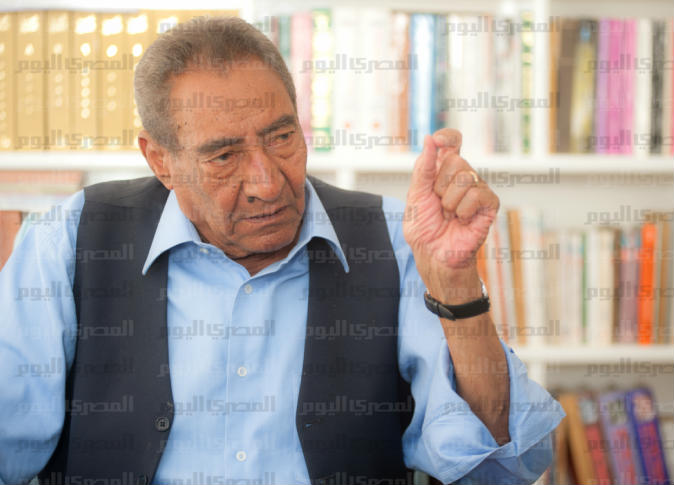
When renowned Egyptian poet Abdel Rahman al-Abnoudi felt that his health was deteriorating and that his days were numbered, he chose Al-Masry Al-Youm for what he called “the death interview” and asked the newspaper to publish it after he passes away.
In the beginning of the interview, Abnoudi managed not to cry, but could not control himself when he spoke of his will.
“Death is closer to the poor,” he said in the interview. “It is always at the door. This is why they like to have many children. And they celebrate death more than they do life.”
“This does not mean that we have hearts of stone. I, for example, can cry very easily, both for me and for others. If I have a tone of sadness now, it is not because I will die, but because I know there are people who will grieve when I depart. My sister Fatma is four years older. She is sick and she is waiting to die, but she cannot imagine that I could go before her," he said.
“I do not want a big post-funeral reception. I want my funeral to take place in a mosque in Ismailia, and I want to be buried in Al-Dabeya. I think very few would come to the funeral, but it would be a chance for them to see the place I chose to live in."
“I am amazed by the courage of Amal Donqol who saw death as a rational equation. I look at it from a more human perspective.”
Abnoudi wrote the following in his will:
"I built this house in Al-Dabeya 25 years ago. The land on which I built it radiates affection, and its walls radiate life. My neighbors are peasants. They are my friends. They will cry when I die just as my family will, and perhaps even more."
"I have built my tomb on the outskirts of the village. Maybe the dome has angered some of the orthodox villagers. I have to be buried here when I die. I do not want a fancy funeral, with my casket enshrined in the Egyptian flag and such things. Maybe my poetry will not die with me."
"I want people to see this village, which is as big as the capital Algiers, and to see the palace that Mubarak gave me."
"As to my wife Nihal and my daughters Aya and Noor, God has blessed me with them. We have lived happily together as much as we could."
Abnoubi was known for his poets, which he tended to write in Egyptian Arabic, rather than Modern Standard Arabic. In addition to famous poems, like “The allowed and prohibited” and “Death on the asphalt”, Abnoubi’s pieces were often turned into songs, sung by Abdel Halim Hafez and Mohamed Mounir.
Edited translation from Al-Masry Al-Youm
